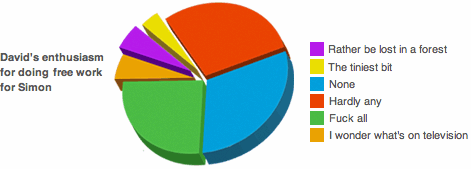I’ve ranted verbosely in the past about the customer service industry going down the tubes (Adventures in Small Business Banking, One Voice, A Representative Will Be With You Shortly, Network Solutions is Utter Garbage, and recently, Guaranteed Value vs. Value Assessments) where much was stemming from experiences with online orders, so the following short tirade will certainly not seem out of character.
In an industry where 90% of the transaction is automated and inexpensive, unlike that of real estate, used car sales or even graphic design, it would seem pretty obvious that the best way to retain ecommerce customers is through a gratifying and easy online experience. If I collected money from a client under the agreement that I would deliver a design work on-time, I could assume the client would be dissatisfied when I followed up with a form letter informing them of upcoming truancy.
Their anger might even be compounded if the letter was cold, impersonal and offered no explanation for the reason of this delay—other than the fact that the issue was on my end and I’m working on it. To further add insult to the client, I might also include that I couldn’t tell them how long the delay was, except that it could be as short as 12 hours. Not communicating the reason for an issue, but sending a templated response informing the client of the second best possible scenario (other than the product being delivered on-time) is an empty method to pacify the disgruntled. I certainly understand that not all industries can quantify this equally, so providing graphic design services and mailing a widget from a colossal warehouse do not perfectly correlate. However I do think that expectations correlate, customers—particularly in a competitive market—correlate, and the services-for-cash system correlates.
